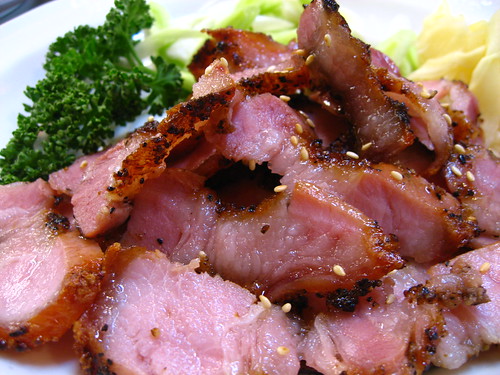 The International Agency for Research on Cancer (IARC), the cancer agency of the World Health Organization, has evaluated the carcinogenicity of the consumption of red meat* and processed meat*, and the news is not good.
The International Agency for Research on Cancer (IARC), the cancer agency of the World Health Organization, has evaluated the carcinogenicity of the consumption of red meat* and processed meat*, and the news is not good.
After thoroughly reviewing the accumulated scientific literature, a Working Group of 22 experts from 10 countries convened by the IARC Monographs Programme classified the consumption of red meat as probably carcinogenic to humans (Group 2A), based on limited evidence** that the consumption of red meat causes cancer in humans and strong mechanistic evidence supporting a carcinogenic effect. This association was observed mainly for colorectal cancer, but associations were also seen for pancreatic cancer and prostate cancer.
The IARC notes in an online Q&A that eating red meat "has not yet been established as a cause of cancer". It also shared that if the reported associations were proven to be causal (that red meat also causes cancer), then the Global Burden of Disease Project has estimated that diets high in red meat could be responsible for 50,000 cancer deaths per year worldwide.
Processed meat was classified as carcinogenic to humans (Group 1), based on sufficient evidence in humans that the consumption of processed meat causes colorectal cancer.
The experts concluded that each 50g portion of processed meat eaten daily increases the risk of colorectal cancer by 18%. According to the most recent estimates by the Global Burden of Disease Project, an independent academic research organisation, about 34,000 cancer deaths per year worldwide are attributable to diets high in processed meat. Assuming the association of red meat and colorectal cancer is proven to be causal (that is, red meat really does cause colorectal cancer), data from the same studies suggest that the risk of colorectal cancer could increase by 17% for every 100 gram portion of red meat eaten daily.
Tobacco smoking and asbestos are also both in Group 1, but the IARC stresses that while all are classified as carcinogenic to humans, the grouping says nothing about the relative danger of each substance. The estimates for meat-related deaths, for example contrast with about IARC-provided figures of 1 million cancer deaths per year globally due to tobacco smoking, 600,000 per year due to alcohol consumption, and more than 200,000 per year due to air pollution.
“For an individual, the risk of developing colorectal cancer because of their consumption of processed meat remains small, but this risk increases with the amount of meat consumed,” says Dr Kurt Straif, Head of the IARC Monographs Programme. “In view of the large number of people who consume processed meat, the global impact on cancer incidence is of public health importance.”
The IARC Working Group considered more than 800 studies that investigated associations of more than a dozen types of cancer with the consumption of red meat or processed meat in many countries and populations with diverse diets. The most influential evidence came from large prospective cohort studies conducted over the past 20 years.
"These findings further support current public health recommendations to limit intake of meat,” says Dr Christopher Wild, Director of IARC. “At the same time, red meat has nutritional value. Therefore, these results are important in enabling governments and international regulatory agencies to conduct risk assessments, in order to balance the risks and benefits of eating red meat and processed meat and to provide the best possible dietary recommendations.”
According to the IARC, cooking meat at high temperatures or with the food in direct contact with a flame or a hot surface, as in barbecuing or pan-frying, produces more of certain types of carcinogenic chemicals (such as polycyclic aromatic hydrocarbons and heterocyclic aromatic amines). However, the working group stopped short of making any statements about how much meat is safe, the safest ways to cook meat, or whether raw meat is better, though it did point out that there is a risk of infection from consumption of raw meat.
Interested?
A summary of the final evaluations is available online in The Lancet Oncology, and the detailed assessments will be published as Volume 114 of the IARC Monographs.
*Red meat refers to all types of mammalian muscle meat, such as beef, veal, pork, lamb, mutton, horse, and goat. Processed meat refers to meat that has been transformed through salting, curing, fermentation, smoking, or other processes to enhance flavour or improve preservation. Most processed meats contain pork or beef, but processed meats may also contain other red meats, poultry, offal, or meat by-products such as blood. Examples of processed meat include hot dogs (frankfurters), ham, sausages, corned beef, and biltong or beef jerky as well as canned meat and meat-based preparations and sauces.
**Limited evidence means that a positive association has been observed between exposure to the agent and cancer but that other explanations for the observations (technically termed chance, bias, or confounding) cannot be ruled out.